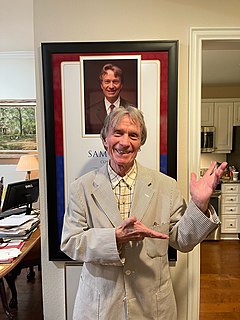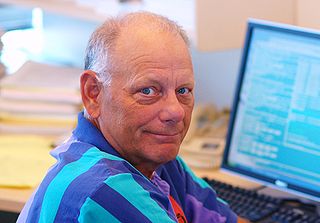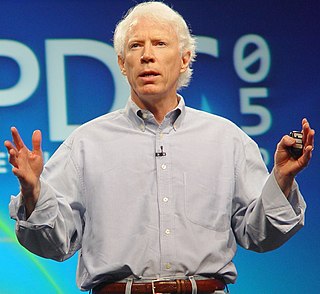A Quote by Ellen Ullman
Closed environments dominated the computing world of the 1970s and early '80s. An operating system written for a Hewlett-Packard computer ran only on H.P. computers; I.B.M. controlled its software from chips up to the user interfaces.
Related Quotes
Computers and computing are all around us. Some computing is highly visible, like your laptop. But this is only part of a computing iceberg. A lot more lies hidden below the surface. We don't see and usually don't think about the computers inside appliances, cars, airplanes, cameras, smartphones, GPS navigators and games.
I'm not of the opinion that all software will be open source software. There is certain software that fits a niche that is only useful to a particular company or person: for example, the software immediately behind a web site's user interface. But the vast majority of software is actually pretty generic.
My first operating system project was to build a real-time system called RSX-11M that ran on Digital's PDP-11 16-bit series of minicomputers. ... a multitasking operating system that would run in 32 KB of memory with a hierarchical file system, application swapping, real-time scheduling, and a set of development utilities. The operating system and utilities were to run on the entire line of PDP-11 platforms, from the very small systems up through the PDP-11/70 which had memory-mapping hardware and supported up to 4 MB of memory.
Beauty is more important in computing than anywhere else in technology because software is so complicated. Beauty is the ultimate defense against complexity. ... The geniuses of the computer field, on the the other hand, are the people with the keenest aesthetic senses, the ones who are capable of creating beauty. Beauty is decisive at every level: the most important interfaces, the most important programming languages, the winning algorithms are the beautiful ones.
































